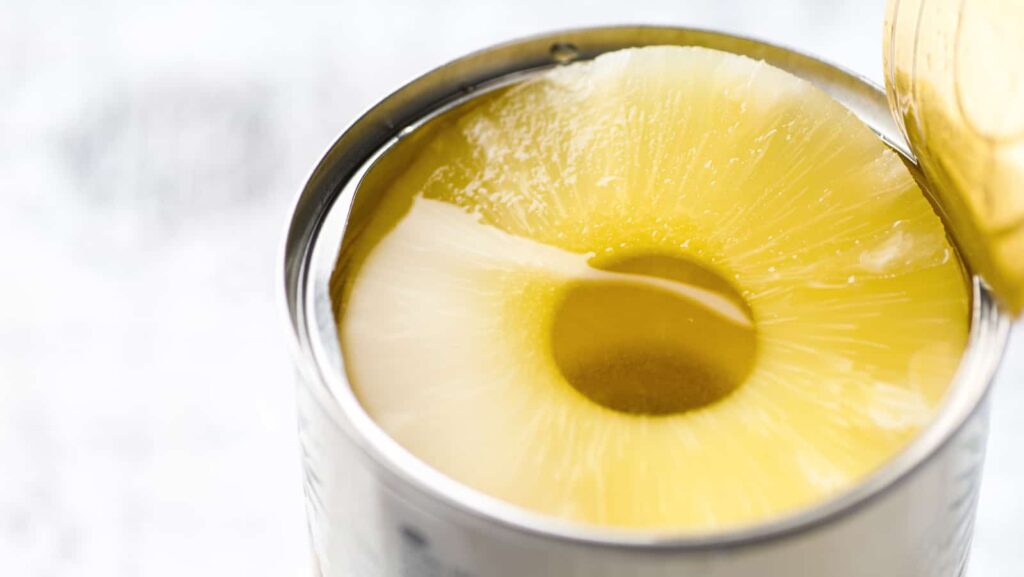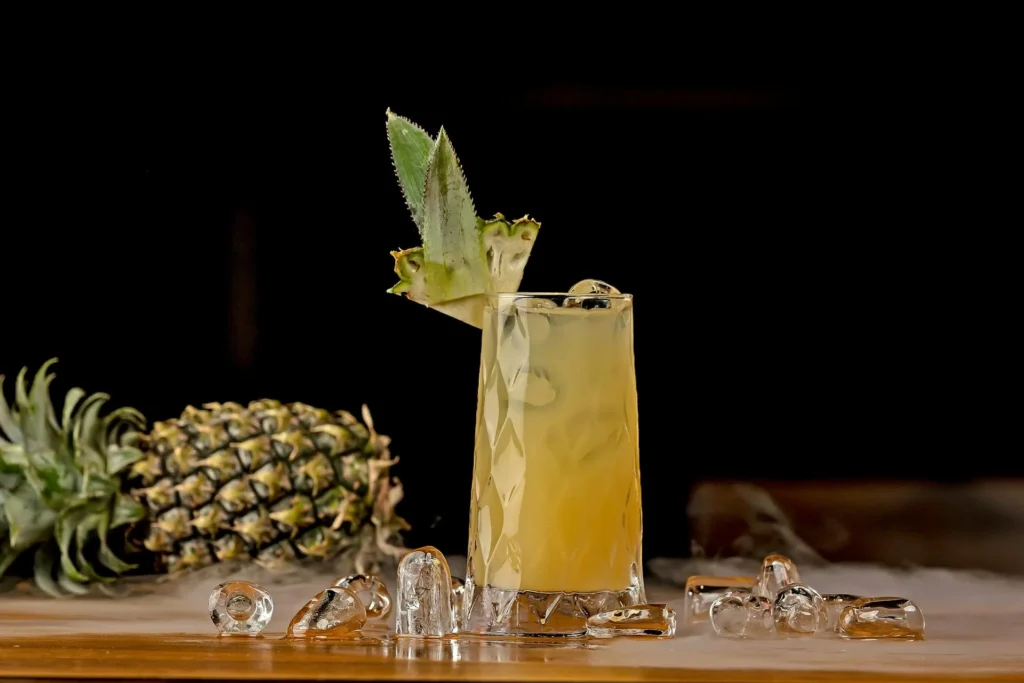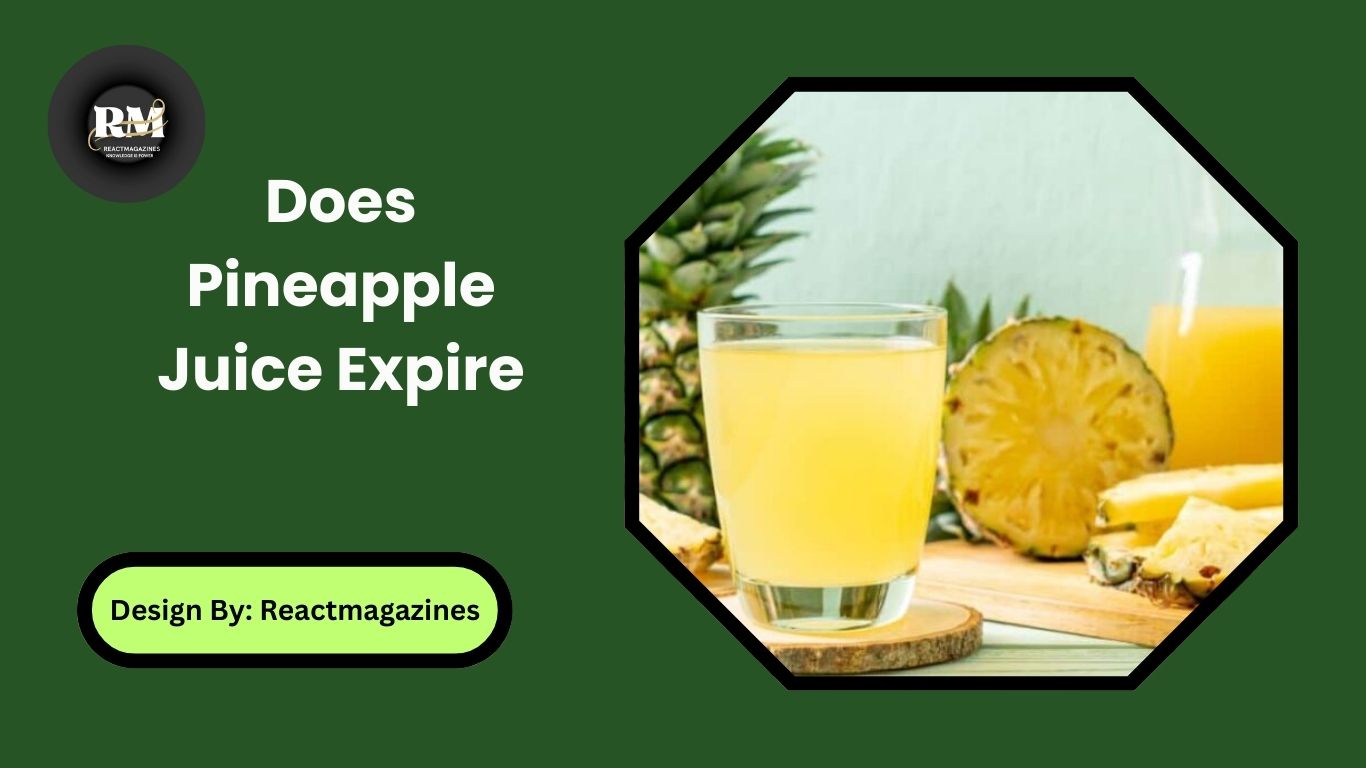Does Pineapple Juice Expire – Shelf Life & Storage Tips!
Yes, pineapple juice does expire. Fresh juice lasts 1–3 days refrigerated, opened bottled juice lasts 5–7 days, and unopened canned juice can last months. Proper storage prevents spoilage and health risks.
Pineapple juice is one of the most refreshing tropical drinks, loved for its sweet, tangy flavor and health benefits. But like all fruit juices, it doesn’t last forever. Whether it’s freshly squeezed, canned, or bottled, the question many people ask is: does pineapple juice expire?
The short answer is yes, pineapple juice does expire. The exact shelf life depends on whether it’s fresh, pasteurized, canned, or opened. Proper storage is key to keeping it safe and delicious. In this guide, we’ll explore the pineapple juice expiration date, storage tips, spoilage signs, and safety concerns so you can enjoy it at its best.
How Long Does Pineapple Juice Last?
The shelf life of pineapple juice varies based on packaging and storage:
- Unopened canned or bottled juice: 12–18 months (check the “best by” date).
- Opened juice (refrigerated): 5–7 days.
- Freshly squeezed juice: 24–72 hours in the fridge.
- Frozen juice: Up to 6 months.
So if you’re wondering, how long does pineapple juice last? The answer depends on how it’s processed and stored.
Does Canned Pineapple Juice Go Bad?

Yes, even canned pineapple juice can go bad. Although it has a longer expiration date because it’s pasteurized and sealed, it’s not immune to spoilage. Signs that canned juice is unsafe include:
- Bulging, rusting, or leaking can.
- Sour or fermented smell when opened.
- Cloudy liquid or unusual color changes.
👉 If you notice any of these, throw it away immediately.
Unopened vs. Opened Pineapple Juice
- Unopened pineapple juice is safe until its printed expiration date (or slightly beyond if stored correctly in a cool, dry place).
- Opened pineapple juice must always be refrigerated and consumed within 5–7 days.
Leaving it at room temperature after opening can lead to bacteria growth in fruit juice, making it unsafe to drink.
Homemade Pineapple Juice Shelf Life
Freshly squeezed pineapple juice has no preservatives, so it spoils faster. It usually lasts 1–2 days in the fridge before oxidation and bacteria growth begin.
To extend shelf life:
- Store in a tightly sealed glass container.
- Refrigerate immediately.
- Add a few drops of lemon juice to slow oxidation.
Pasteurized vs. Fresh Pineapple Juice
- Pasteurized pineapple juice (bottled or canned) has a longer shelf stability due to heat treatment, which kills harmful bacteria.
- Fresh pineapple juice is rich in enzymes and vitamins but should be consumed quickly since it lacks preservatives.
👉 For daily use, fresh is best for nutrition. For long-term storage, pasteurized or canned juice is safer.
How to Tell if Pineapple Juice is Bad?

Recognizing spoilage is important for food safety. Here are common signs pineapple juice has spoiled:
- Sour, yeasty, or vinegar like smell.
- Change in color (turning brown or murky).
- Gas bubbles or fizzing (sign of fermentation).
- Off taste or bitterness.
- Mold around the container lid.
If in doubt, don’t taste it, just discard it.
Can Expired Pineapple Juice Make You Sick?
Yes, drinking spoiled juice can cause foodborne illness. Expired juice may contain harmful bacteria and molds that lead to:
- Nausea
- Vomiting
- Diarrhea
- Stomach cramps
If you’ve consumed expired juice and feel sick, seek medical advice immediately.
Pineapple Juice Turning Brown – Is It Bad?
When exposed to air, pineapple juice undergoes oxidation, turning it brownish. This doesn’t always mean it’s unsafe, but it may taste bitter and lose nutrients. If browning is accompanied by an off smell or fizzing, it’s spoiled.
Refrigeration and Storage Tips
To keep pineapple juice fresh and safe:
- Refrigerate after opening Never leave it at room temperature for more than 2 hours.
- Use airtight containers Glass bottles are better than plastic.
- Freeze for longer storage Pour into ice cube trays or freezer bags.
- Avoid temperature changes Keep juice consistently cold.
How Long Does Pineapple Juice Last at Room Temperature?

- Unopened canned juice: Up to 12 months in a cool pantry.
- Opened juice: Only 2–4 hours before bacteria growth begins.
- Homemade juice: Should never be left unrefrigerated.
Food Safety and Manufacturer Guidelines
Most manufacturers print “best by” or expiration dates for safety. While juice may still be drinkable shortly after, its taste, quality, and safety decline with time. Always follow storage guidelines provided on the packaging.
Preserving Pineapple Juice Longer
If you want to keep pineapple juice fresh for longer, try these methods:
- Refrigeration: Best for short-term (5–7 days).
- Freezing: Best for long-term (up to 6 months).
- Vacuum sealing: Helps reduce oxygen exposure and oxidation.
FAQs:
1. How long does fresh pineapple juice last in the fridge?
Fresh pineapple juice lasts about 24–72 hours when refrigerated. Without preservatives, it spoils quickly due to oxidation and bacteria growth. For best taste and safety, consume it within two days.
2. Can you drink expired canned pineapple juice?
It’s unsafe to drink expired canned juice if the can is bulging, leaking, rusted, or has an odd smell. Even past the printed date, always check for spoilage signs before consuming.
3. Does pineapple juice go bad if left unrefrigerated after opening?
Yes, opened pineapple juice spoils quickly at room temperature, often within 2–4 hours. Bacteria growth accelerates without refrigeration, making it unsafe to drink. Always refrigerate immediately after opening for freshness and safety.
4. Why does pineapple juice turn brown?
Pineapple juice turns brown due to oxidation, a natural process when juice is exposed to air. Browning doesn’t always mean spoilage, but if paired with sour smell or fizzing, it’s unsafe.
5. Can freezing extend pineapple juice’s shelf life?
Yes, freezing pineapple juice can extend its shelf life up to six months. Store in freezer safe containers, leaving space for expansion. Thawed juice may change texture but remains safe and flavorful.
Conclusion
Pineapple juice is refreshing and healthy, but it doesn’t last forever. Its shelf life depends on whether it’s fresh, canned, or opened, with proper refrigeration being essential for safety. Spoilage signs like sour smell, fizzing, or browning should never be ignored. While unopened canned juice can last months, fresh juice requires quick consumption. Freezing is a smart way to extend its usability. By following safe storage tips, you’ll always enjoy pineapple juice at its best while avoiding health risks.






